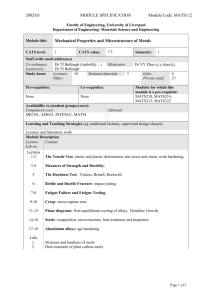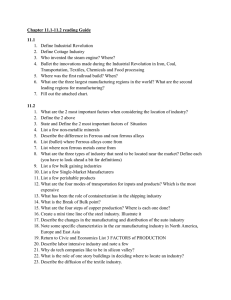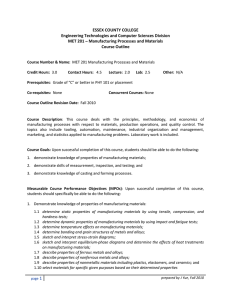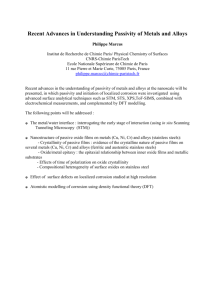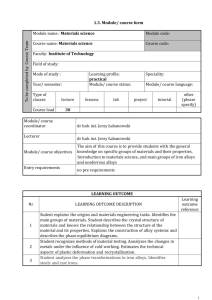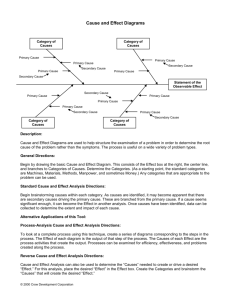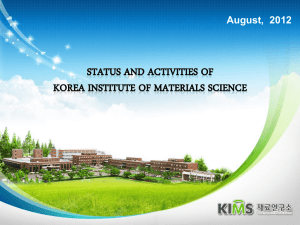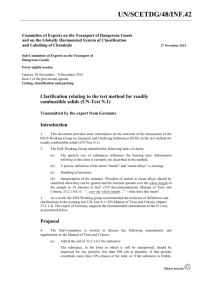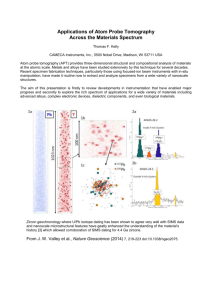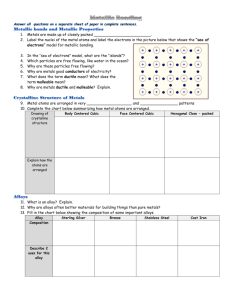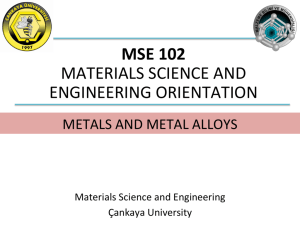Engineering Materials
advertisement
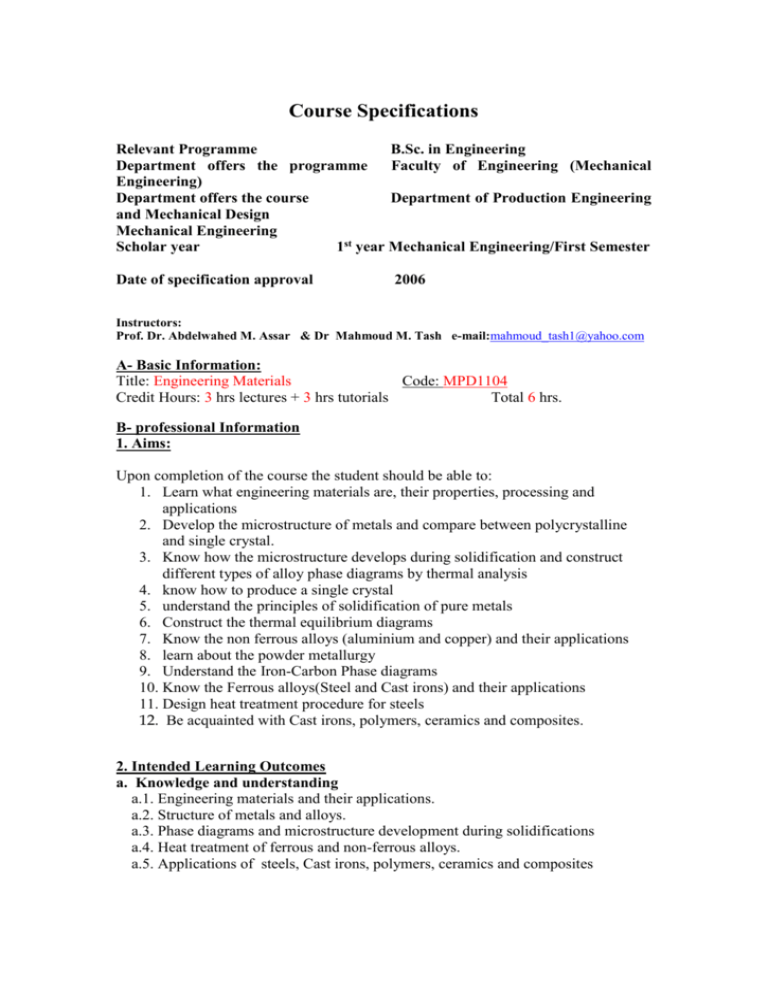
Course Specifications Relevant Programme B.Sc. in Engineering Department offers the programme Faculty of Engineering (Mechanical Engineering) Department offers the course Department of Production Engineering and Mechanical Design Mechanical Engineering Scholar year 1st year Mechanical Engineering/First Semester Date of specification approval 2006 Instructors: Prof. Dr. Abdelwahed M. Assar & Dr Mahmoud M. Tash e-mail:mahmoud_tash1@yahoo.com A- Basic Information: Title: Engineering Materials Code: MPD1104 Credit Hours: 3 hrs lectures + 3 hrs tutorials Total 6 hrs. B- professional Information 1. Aims: Upon completion of the course the student should be able to: 1. Learn what engineering materials are, their properties, processing and applications 2. Develop the microstructure of metals and compare between polycrystalline and single crystal. 3. Know how the microstructure develops during solidification and construct different types of alloy phase diagrams by thermal analysis 4. know how to produce a single crystal 5. understand the principles of solidification of pure metals 6. Construct the thermal equilibrium diagrams 7. Know the non ferrous alloys (aluminium and copper) and their applications 8. learn about the powder metallurgy 9. Understand the Iron-Carbon Phase diagrams 10. Know the Ferrous alloys(Steel and Cast irons) and their applications 11. Design heat treatment procedure for steels 12. Be acquainted with Cast irons, polymers, ceramics and composites. 2. Intended Learning Outcomes a. Knowledge and understanding a.1. Engineering materials and their applications. a.2. Structure of metals and alloys. a.3. Phase diagrams and microstructure development during solidifications a.4. Heat treatment of ferrous and non-ferrous alloys. a.5. Applications of steels, Cast irons, polymers, ceramics and composites b. Intellectual skills a.1. Identifying materials in engineering parts used in daily life. a.2. Identifying microstructure and properties of some important alloys. 3. Contents: Engineering materials, Polycrystalline metals, Microstructure of metals, Production of single crystal, Solidification of pure metals, polycrystalline metal, thermal equilibrium diagrams, non ferrous alloys and applications, powder metallurgy, IronCarbon Phase diagrams, Ferrous alloys and applications, Heat treatment of steels, Cast irons, polymers, ceramics , composites. Lecture Topic Outline Week Topics 1 Introduction to Engineering Materials& Applications 2 Crystal Structure of Materials with Specific relevance to Metallic Systems (FCC, BCC, & HCP). No. of hours Lect. 3 Tutorial 3 3 3 - Problems on Crystal Lattice. 3 Microstructure of metals 3 3 4 Production of single crystal, Solidification of pure metals, Polycrystalline metal 3 5 Thermal equilibrium diagrams: Solid Solution type. 3 3 6 Thermal equilibrium diagrams: Eutectic type. 3 3 7 Thermal equilibrium diagrams: Pretectic type. 3 3 8 Non Ferrous alloys and applications: Aluminium alloys 3 3 Non Ferrous alloys and applications: Copper alloys 3 3 9 3 Powder Metallurgy 10 Mid-Term Exam. 3 Iron-Carbon phase Diagrams: 3 11 3 3 - Problems on: using Fe-C phase diagram. 12 Ferrous alloys and applications: classification of steels and applications 3 13 Heat treatment of steels. 3 3 14 Cast Irons: classification and applications 3 3 15 Polymers, ceramics and composites. 3 3 3 4. Teaching and learning methods: Blackboard, and Over-head. 5. Student Assessment: Grading Basis: Attendance of lectures and tutorials is a most. Homework assignments will consist of essay questions and problem solving cases. There will be several quizzes and one midterm examination and one final test. Examinations are comprehensive, including subjects from all assigned readings, lectures, laboratory activities, and classroom demonstrations. Year Work: Item #Points% Totals__ Attendance 5 Section work Homework assignments 10 Pop Quizzes 15 Midterm exam 30 Year Work 60 Final Examination 90 150 _____________________________________________________________________ 6. List of References: 1. Notes prepared by the lecturer. 2. Principles of Material Science, William Smith, 1996. 3. Principles of Engineering Metallurgy, L. Krishna Reddy, 1996. 4. many internet web sites, 2002-2004
